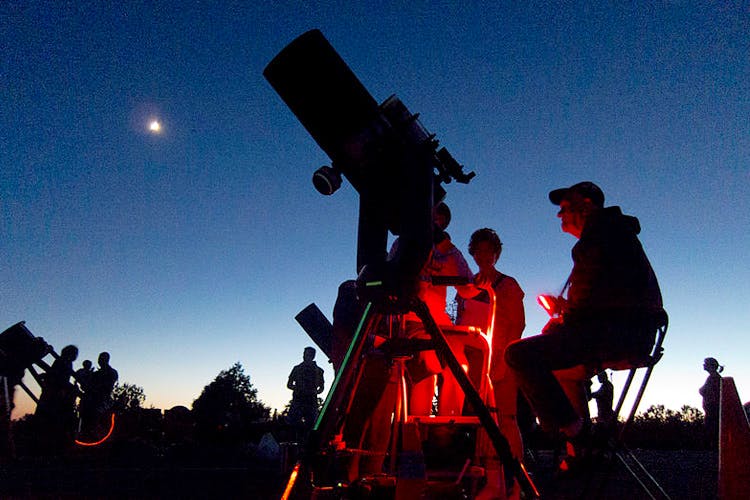If stars are your thing, not the Bollywood or the Cricket kind but the celestial ones, then this should be on your must visit list when in Goa. This PAO cannot be eaten, but it will let you check out the awesome night skies across Goa, and offer fabulous nighttime views of the Panjim city.
Go Star-Gazing At The Must-Visit Public Astronomical Observatory In Goa
Shortcut
What Else??
The first of it’s kind in India; this is the Public Astronomy Observatory or PAO as they cheekily call it. It endeavours to ensure appreciation and popularisation of amateur astronomy for all of us who are amazed with the skies but do not know the Big Dipper from the Small one.
You can thank Mr. Percival Noronha a retired government officer and the AFA {Association of Friends of Astronomy} who joined forces in 1982 to set up the observatory that is government funded. AFA is more than a 100-year-old organisation that was founded in 1860, that voluntarily looks after and runs the PAO.
Located on the terrace of the Junta building on the well-known 18th June road, the local enthusiasts will welcome you happily and explain all that you are looking at. There is no entry fee, and it is open to all from 7.00pm to 11.00pm on weekdays. It is of course closed during the monsoon months of June till October, or when there is heavy cloud cover. But is open otherwise on all weekdays form the 14th of November till the 31st of May.
Is There More???
Compared to other cities and towns, Goa offers an ideal location to watch movements in the sky. It is a seaside location and does not have any skyscrapers or very highly lit buildings, making it a great place for amateur astronomy enthusiasts. You will find a number of reflector telescopes set up that are more than adequate to sight and study the movements of heavenly bodies. Making it a fun, entertaining and educational activity, especially if you have kids or want to be able to show off your skills at spotting these celestial bodies.
#LBBTip
The AFA also organises gatherings, seminars & workshops other than regular viewings throughout the year. So follow their page to know what is happening. The Observatory shuts down during the monsoon months from June till September.

